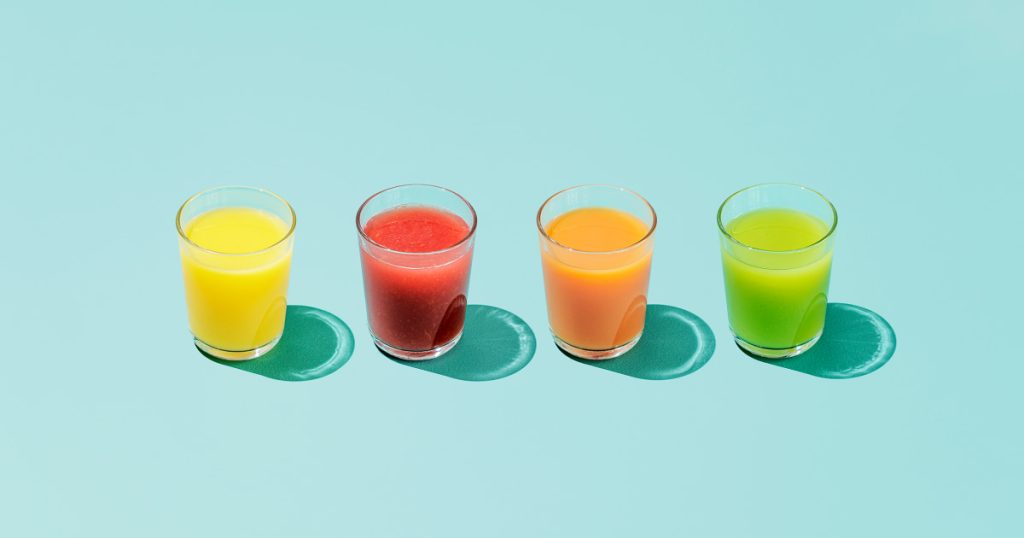Juice is a popular drink that many people enjoy, but there are some important considerations to keep in mind when choosing the right kind of juice. While orange juice is the most popular fruit juice in the U.S., there are many options available beyond OJ, including a variety of blends and cocktails. It’s important to choose juice that is 100% juice, as many juice products are actually sugar-sweetened beverages with added sugars like high fructose corn syrup, which are not as nutrient-dense. According to the Dietary Guidelines for Americans 2020-2025, 100% juice can be a good source of nutrients if you can’t meet your daily fruit or veggie intake.
Registered dietitians Natalie Rizzo and Lisa Young agree that 100% juice can fit into a healthy diet as it is made from just the fruit or vegetable without any added sugar. However, juice is considered liquid calories and may not make you feel as full as when you eat the whole fruit or vegetable, as it is lower in fiber. When choosing store-bought juice, Rizzo advises looking for products that say “100% juice” on the front with a fruit or vegetable as the first ingredient. Young adds that there should be zero added sugar in the juice that you choose.
The healthiest juice options according to Rizzo and Young include pomegranate juice, beet juice, and low sodium vegetable juice. Pomegranate juice is rich in polyphenols, or antioxidants, that can benefit heart health, lower blood pressure, and possibly have anti-cancer properties. Beet juice contains nitrates that can increase blood flow and reduce blood pressure, while low sodium vegetable juice is high in antioxidants, potassium, and other nutrients. Other healthy juice choices include tart cherry juice, orange or grapefruit juice, which are high in vitamin C, but caution should be taken with grapefruit juice, as it may interact with certain medications.
When looking for juices with less sugar, Rizzo notes that unsweetened tart cherry juice is a good option. Vegetable and tomato juices also tend to have less added sugars, along with beet juice. While 100% fruit juice does contain natural sugars, it can still be consumed daily in moderation. Rizzo and Young recommend sticking to 4 ounces, or half a glass, of 100% fruit juice per day to avoid excessive sugar intake, while low sodium vegetable or tomato juice can be consumed in larger portions due to their lower sugar and calorie content.
In terms of weight loss, Young suggests low-sodium vegetable or tomato juices as they tend to curb appetite. While there is no specific juice that is proven to aid in weight loss, Rizzo recommends choosing a juice that is not too sweet and offers some health benefits. Ultimately, whether you choose pomegranate juice, beet juice, or another option, incorporating 100% juice into your diet can be a way to get in nutrients from fruits and vegetables that you may not consume enough of otherwise.


